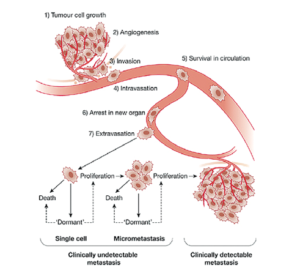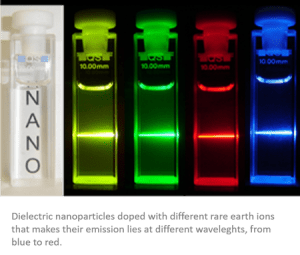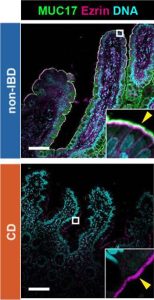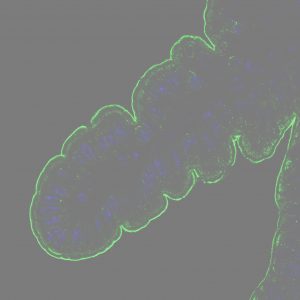OCTOBER…it is the tenth month of the year whose name comes from the Roman calendar. It is when leaves start falling off the trees, when the expedition leaded by Christopher Columbus went ashore in the American continent and when United Nations was established. It is also a month of celebrations: Hispanic Heritage Day, World Food Day, World Animal Day, and do not forget about the Anglo-Saxon tradition of Halloween. However, I am writing this post because October is also known as the Breast Cancer Awareness Month.

Schematic representation of metastasis. Some tumour cells from primary tumours (1-3) are able to get into the circulation system (4), travelling and surviving in the blood or lymph vessels (5). Once they arrive to a distant organ (6) most of them die. But some may remain alive as single cells or in small groups in an inactive state for a long period of time. This state is not clinically detectable. If these inactive tumour cells get re-activated, they grow giving rise to a secondary tumour or metastasis.
Breast cancer is the most common cancer diagnosed in women worldwide. Approximately 1.67 million new cases were diagnosed in 2012 (GLOBOCAN, 2012). 1 in 8 women will be diagnosed with breast cancer during their lifetime. But, do not think it is a female disease. Yes, you read well. Men can also suffer breast cancer, although it is not as usual (1 case in men per 100 cases in women).
Sometimes breast cancer is back after years or even decades after treatment. A specific type of cancer cells within the tumour called Cancer Stem-like Cells (or tumour-initiating cells) may be responsible for the development of this phenomenon known as metastasis. These cells represent less than 1% of the tumour, but they are able to survive and hibernate in the breast or other areas of the body, thus are not affected by treatments. Although they are able to generate new tumours, our body does not make their way easy. Metastasis is an inefficient process. Cancer Stem-like Cells have to deal with the whirlwind of entering in the blood or lymph circulation, facing pressure and differences of flow in order to arrive to their new destination: distant sites in the body. Few arrive. Once there, most die. But some, at best, can survive in a quiescence state, inactive but alive, for long periods of time or even forever. In Grimms’ fairy tale, Sleeping Beauty lies in a deep sleep surrounded by a hedge of thorns; it is like that how Cancer Stem-like Cells are in this strange location. However, once they have ‘awoken’, they then develop into secondary tumours, which are difficult to cure.
What wakes these cells? How can we avoid waking them up? Unfortunately, there is no answer yet. Contrary to the fairy tale, the best strategy would be to maintain the cells in a deep sleep, avoiding the prince’s kiss. Investigation in the metastasis field tries to understand this clinical issue and develop new therapies in order to prevent the development of secondary tumours. We are on our way, there is hope.

Be breast aware! Flyer from the Touch, Look and Check! campaign leaded by Breast Cancer Now in the United Kingdom, to raise breast cancer social awareness
The best treatment against breast cancer is early detection. Organizations such the Spanish Association Against Cancer (Asociación Española Contra el Cáncer (AECC)) and Breast Cancer Now here in United Kingdom want to make everyone be breast aware to spot the symptoms of breast cancer as early as possible. Moreover, they provide support to breast cancer patients and their families. Thanks to public donations and fundraisers both organizations fund research projects to prevent, detect and treat all breast cancer types (or any cancer type for AECC).
OCTOBER…should not be chosen as a month to talk about breast cancer. Every day counts, we cannot lose time! To win the battle we need to break taboos. Nobody knows your body better than you, so Touch, Look and Check! If you feel anything unusual, talk to your GP. Cancer does not care about age, gender, ethnicity or social status. Spread the word! Help to stop people dying from breast cancer. Now it is time, rise breast cancer awareness within your community!
By Dr Angélica Santiago Gómez, Postdoctoral Research Associate, University of Manchester. SRUK Constituency of Manchester.
Join this campaign on the social media: @MCRBreastCentre @breastcancernow @aecc_es @MCRCnews #wearitpink #súmatealrosa #MBCAday #BCMets






